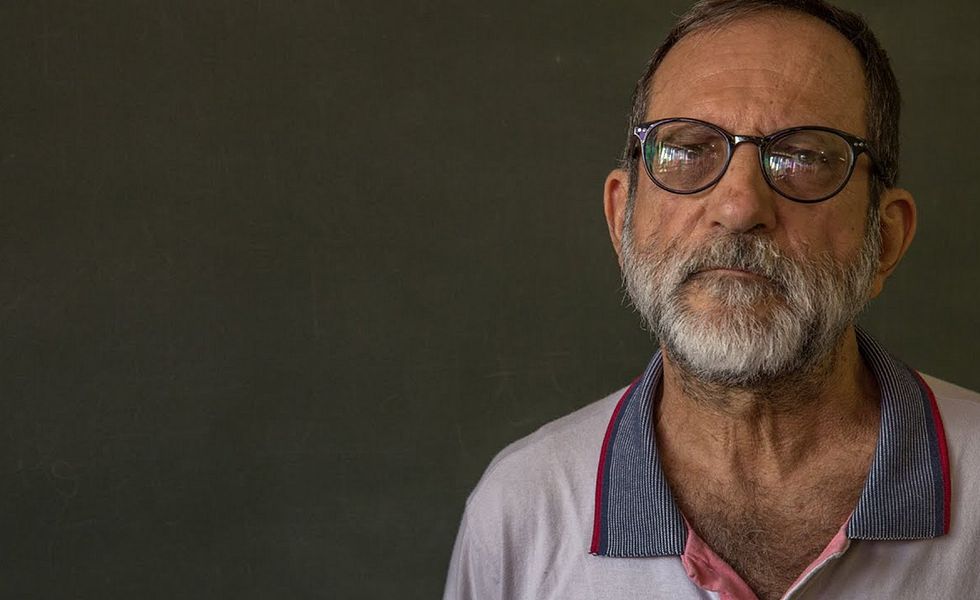Cancers, congenital malformations and fertility problems
Laurent Gaberell and Géraldine Viret, February 20, 2020
 ©
Lunaé Parracho/Reuters
©
Lunaé Parracho/Reuters
Our analysis of the Phillips McDougall data show that in 2018, BASF, Bayer, Corteva Agriscience, FMC and Syngenta made close to a quarter of their sales income (22%) – or some 3 billion dollars – with pesticides that can have devastating effects on health after repeated long-term exposure, even at very low doses. And the real numbers are undoubtedly much higher, as the available data cover only part the global market. Pesticides classified as probable human carcinogens alone constituted 13% of the five CropLife members’ sales that year.
The leading sellers of the pesticides with the highest levels of chronic toxicity? The German giants Bayer and BASF, along with Swiss Syngenta, alone made 85% of the CropLife sales in this category. Among the flagship products: 54 substances classified by regulatory authorities as human carcinogens, reproductive toxicants or endocrine disrupters.
The agrochemical giants proclaim their innocence by affirming that exposure levels are so low that these substances pose no risk. But for the toxicologist Christopher Portier, veteran of more than 30 years of experience in the American federal government, this argument does not hold up: “Those pesticides carry high risk and they are high-use pesticides. The exposure is there, the risk is there, the burden is clearly there.”
King of the controversy
A single molecule by itself represents a third of these sales, or a billion dollars: glyphosate. The most widely used pesticide in the world, glyphosate was classified in 2015 as a “probable human carcinogen” by the WHO International Agency for Research on Cancer (IARC). The decision had the effect of a bomb – because glyphosate residues are found in close to half of all foods.
The same year, the European Food Safety Authority (EFSA) and the US Environmental Protection Agency (EPA) concluded that glyphosate was not carcinogenic, which only served to foment the controversy.
“I believe the IARC classification is exactly right,” said Christopher Portier, who was involved in WHO’s review of glyphosate. The scientist spent the last three years reviewing the open literature and the confidential animal studies that EFSA was forced to release by a decision of the European Court of Justice. “It is absolutely clear that glyphosate can cause cancers in experimental animals. And the human evidence for an association between glyphosate and cancer is also there, predominantly for non-Hodgkins lymphoma,” Portier said.
Glyphosate’s authorisation was renewed by a vote of the EU member states through 2022, although a number of countries, including France and Germany, announced their intention to ban the chemical in 2023, even if the EU further extends its authorisation.
The large majority of glyphosate sales were made by Bayer, world leader in the agrochemical market thanks to its controversial purchase of Monsanto. In second place: the Swiss giant Syngenta, with 15% of the sales. In the United States, its main market for glyphosate, Bayer is faced with an avalanche of lawsuits by farmers claiming their cancers were caused by the herbicide.
Several jury verdicts have already awarded plaintiffs almost 2.5 billion dollars. The German giant could be obliged to pay up to 10 billion dollars to close out this file.
Less conspicuous poisons
While glyphosate continues to make the headlines, our analysis of the Phillips McDougall data shows that the CropLife giants also made their living selling 29 other pesticides classified as probable carcinogens by the United States EPA. These molecules are largely unknown to the greater public.
Among them is the Bayer fungicide epoxiconazole, which is classified not only as a likely carcinogen by the U.S. EPA but also as toxic to reproduction by the European chemical agency (ECHA), meaning it can damage sexual function and fertility or adversely affect the fetus. This chemical is still authorised in the EU and Switzerland although it was recently banned in France after the national Agency for Food, Environmental and Occupational Health and Safety concluded that it is an endocrine disruptor that “poses a worrying level of danger to man and the environment.”
Some pesticides are forever
Still another CropLife blockbuster is atrazine, an herbicide sold by Syngenta that can disrupt the hormonal system and damage the developmental and reproductive systems. Highly persistent, atrazine has been banned in Switzerland and the EU for many years due to its widespread and long-lasting contamination of drinking water sources and its systematic breaching of the authorized limit. In Brazil and the United States, Syngenta’s main markets for atrazine, the chemical is one of the substances most frequently detected in drinking water.
Warning: time bomb ticking!
Numerous studies have shown that exposure to these pesticides is a major risk factor for many chronic diseases, notably different forms of cancer, neurodegenerative disorders, congenital malformations and childhood developmental disorders.
Are these pesticides more dangerous in developing and emerging countries? We put the question to several experts, including Hans Muilerman, toxicologist for PAN Europe. “Regulation in those countries is much less strict than in the European Union,” he replied. “Exposure levels are significantly higher.” In Argentina, for example, another important market, “Aerial spraying is still allowed, and people living in villages near farm fields are regularly exposed and often fall sick,” he explained.
In Brazil, the number one destination of pesticides recognised as chronically toxic, “Research reveals increased cases of congenital malformations, severe skin irritation and respiratory problems, various forms of cancer, and neurodevelopmental problems that have been associated with pesticide exposure,” says Baskut Tuncak.
A situation condemned by numerous scientists and doctors in the country, who have sounded alarms about the disastrous impacts of the exponential use of highly hazardous pesticides, accentuated by the irresponsible policies of the extreme-right president Jair Bolsonaro.
Disclaimer
This text is available in three languages. In case of discrepancy between the different versions, the German text will prevail.


